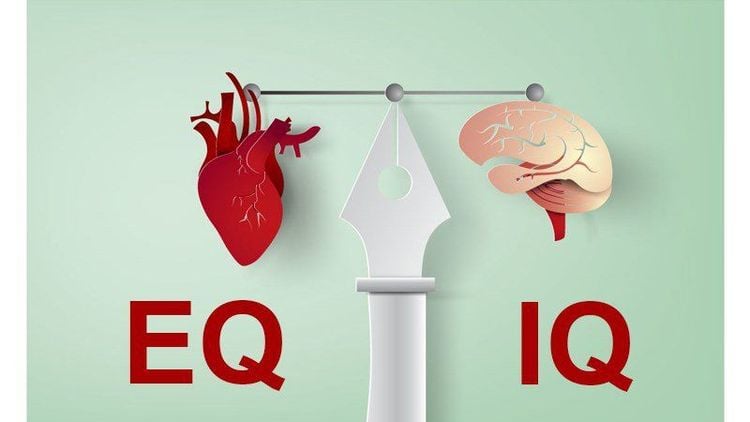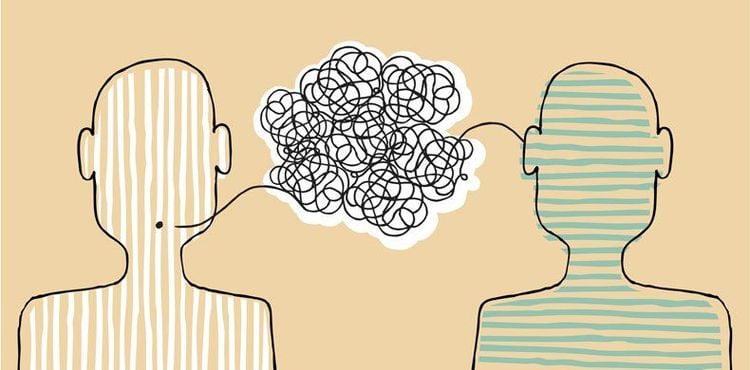This is an automatically translated article.
Emotional intelligence manages your own emotions in positive ways to reduce stress, communicate effectively, empathize with others... Emotional intelligence helps you build strong relationships and be more successful, achieving work goals.
1. What is emotional intelligence?
Emotional intelligence (EQ) refers to the ability to perceive, control, and evaluate emotions. Some researchers argue that emotional intelligence can be learned and reinforced, while others argue that emotional intelligence EQ is a trait of innate ability. The ability to express and control emotions is essential, but so is the ability to understand, interpret, and react to the emotions of others. You can imagine you can't understand when a friend feels sad or when a coworker is angry. Psychologists call this ability emotional intelligence, and some experts even suggest that it may be more important than IQ in your overall success.
2. How to measure emotional intelligence
Several different assessments have emerged to measure emotional intelligence levels. Such tests usually fall into one of two categories: Self-reported tests and aptitude tests.
Self-reported tests are the most popular because they are the easiest to administer and score. In such tests, respondents respond to questions or statements by assessing their own behaviors. For example, for a statement such as "I often feel that I understand how others are feeling", the contestant could describe the statement as disagreeing, slightly disagreeing, agreeing or completely. agree.
On the other hand, aptitude tests involve people reacting to situations and then assessing their skills. Such tests typically ask people to demonstrate their abilities, which are then assessed by a third party to see if their EQ is high.
If you are taking an emotional intelligence test administered by a mental health professional, here are two measures that can be used:
Mayer-Salovey-Caruso Emotional Intelligence Test (MSCEIT) : Is a test based on the ability to measure 4 arms of the EI model of Mayer and Salovey. Contestants perform tasks designed to assess their ability to perceive, identify, understand, and manage emotions. The Social and Emotional Competency Inventory (ESCI) is based on an older tool known as the Self-Assessment Questionnaire and involves asking people who know the individual to give a rating on the person's abilities. it in a number of different emotional capacities. The test is designed to assess social and emotional abilities that distinguish those who are strong leaders. There are also plenty of informal online resources, many of which are free, for investigating your emotional intelligence.

Có một số bài kiểm tra trí tuệ cảm xúc có thể đo lường EQ của bạn
3. Components of emotional intelligence
Researchers suggest that there are four different levels of emotional intelligence, including emotional awareness, the ability to reason using emotions, the ability to understand emotions, and the ability to manage emotions .
Emotional Awareness: The first step to understanding emotions is to perceive them correctly. In many cases, emotional awareness can be involved in understanding nonverbal cues such as body language and facial expressions, which is also a factor in the development of emotional intelligence. Reasoning with emotions: The next step involves using emotions to promote thinking and cognitive activity that powers emotional intelligence. Emotions help determine our priorities for attention and reactions; We react emotionally to things that grab our attention. Understanding emotions: The emotions we perceive can have many different meanings. If someone is expressing angry emotions, the observer must explain the cause of that person's anger and what it means. Emotion Management: The ability to effectively manage emotions plays a key role in emotional intelligence and to the highest degree. When you exercise emotional regulation and respond appropriately and respond to the emotions of others, you manage your emotions better. The 4 branches of this model are ordered by complexity with more basic processes at the lower level and more advanced processes at the higher level. For example, the lowest levels are involved in the perception and expression of emotions, while the higher levels require more conscious involvement and involve emotional regulation.
4. The impact of emotional intelligence on people
Interest in teaching and learning social and emotional intelligence has increased in recent years. Social and emotional learning (SEL) programs have become a standard part of the curriculum of many schools.
The goal of these initiatives is not only to improve health and well-being, but to help students succeed in school and to prevent school violence.
The impact of emotional intelligence on people includes:
Think before you react: Emotionally intelligent people know that emotions can be strong but they can also be temporary. When a highly emotional event occurs, such as becoming angry at a coworker, an emotionally intelligent response will be to take some time before reacting. This allows people to calm their emotions and think more rationally about all the factors surrounding the argument. Better Self-Awareness: Emotionally intelligent people are not only good at thinking about other people's feelings, but they are also good at understanding their own emotions. Self-awareness allows people to consider many different factors that contribute to their emotions. Empathize with others: A big part of emotional intelligence is being able to think about and empathize with how others are feeling. This often involves considering how you would react if you were in a similar situation. People with strong emotional intelligence are able to consider the opinions, experiences, and feelings of others and use this information to explain why people behave the way they do.

Đồng cảm với người khác là một trong các tác động của trí tuệ cảm xúc
5. How to use emotional intelligence effectively
Emotional intelligence can be used in many different ways in your daily life. Some different ways to exercise emotional intelligence include:
Can accept criticism and take responsibility; Can continue after making a mistake; Can say no when you need to; Can share your feelings with others; Can solve problems in ways that work for everyone; Have empathy for others; Have excellent listening skills; Know why you do what you do; Do not judge others. Emotional intelligence is essential for good interpersonal communication. Some experts believe that this ability is more important in determining success in life than IQ.
Emotional intelligence is important, but you can take the following steps to improve your own social and emotional skills:
Listening: If you want to understand what others are feeling See, the first step is to pay attention. Take the time to listen to what people are trying to tell you, both verbally and non-verbally. Empathy: Being emotional is paramount, but you also need to put yourself in the other person's shoes to really understand their point of view. Such activities can help you build an emotional understanding of a particular situation as well as develop stronger emotional skills in the long run. Reflection: The ability to reason with emotions is an important part of emotional intelligence. Consider how your own emotions influence your decisions and behaviour. When you are thinking about how other people react, assess the role their emotions play. In short, emotional intelligence helps you build stronger and more successful relationships and achieve your work goals. Emotional intelligence can also help you connect with your emotions, turn intentions into action, and make informed decisions.
Please dial HOTLINE for more information or register for an appointment HERE. Download MyVinmec app to make appointments faster and to manage your bookings easily.
References: healthline.com, verywellmind.com, helpguide.org












